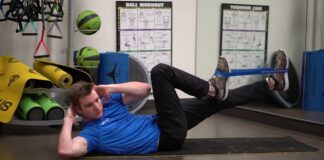Workplace accidents can have devastating consequences for your health and well-being. Whether it’s a slip and fall, exposure to hazardous materials, or a machinery-related incident, injuries sustained on the job can significantly disrupt your life. While the immediate focus is often on medical treatment and recovery, rebuilding your health after a workplace accident is crucial in reclaiming your life and ensuring a sustainable, long-term recovery. This comprehensive guide explores the essential steps and strategies to help you rebuild your health after a workplace accident.
The Immediate Aftermath
When a workplace accident occurs, the immediate focus is addressing the injuries and ensuring safety. Your health and well-being are paramount. Seek immediate medical attention. This is even if your injuries seem minor. A thorough medical evaluation can identify hidden injuries and establish a baseline for your recovery. Inform your direct supervisor or employer about the accident as soon as possible. According to seasoned workers compensation lawyers, reporting the incident is a legal requirement in many places and a critical step in ensuring that the circumstances leading to the accident are documented. Record the details of the accident, including the date, time, location, and any factors that may have contributed to it. Take photographs if possible. This information can be invaluable for any potential legal or insurance claims.
Coping with Physical and Emotional Trauma
Workplace accidents can lead to physical injuries but often result in emotional and psychological trauma. Coping with these aspects is crucial for your overall well-being. Consider seeking counseling or perhaps therapy, to address the emotional toll of the accident. Post-traumatic stress, anxiety, and depression are common after workplace accidents; professional support can help you navigate these challenges. Physical injuries may require rehabilitation or physiotherapy. A qualified therapist can help you regain strength, mobility, and function, reducing the long-term impact of the injuries. If you are in chronic pain due to your injuries, work with your medical team to develop a pain management plan. This may include medications, physical therapies, or alternative pain management techniques.
Legal and Financial Considerations
Rebuilding your health after a workplace accident often involves addressing legal and financial aspects. If you were injured at work, workers’ compensation benefits may apply to you. They provide coverage for medical expenses and lost wages as well as vocational rehabilitation in certain instances. Consult a legal practitioner experienced in workers’ compensation to make sure you receive everything that’s owed to you. Likewise, accidents at the workplace that were due to negligence or unsafe conditions might warrant personal injury claims against either your employer or another third-party; to explore this further seek legal counsel from personal injury advocates in that field. A workplace accident can result in financial strain due to medical bills and lost income. Work with a financial advisor to manage your expenses and explore any available financial assistance, such as disability benefits or government programs.
Rebuilding Physical Health
Rebuilding physical health is a multifaceted process involving medical care, rehabilitation, and self-care. Continued medical follow-up is essential to monitor your progress, address any complications, and ensure your injuries heal properly. Follow your healthcare provider’s recommendations. Physical rehabilitation is often a long-term process. Rehab sessions must be attended regularly in order to regain strength and mobility, following your therapist’s exercises and advice to regain both. A healthy diet and physical activity is also integral in aiding recovery – discuss this matter with healthcare providers who may develop an individualised nutrition and fitness program tailored specifically to you needs and limitations. Sleep is key when healing happens – ensure you’re getting enough restful restful slumber by creating an efficient sleeping schedule and setting a reminder alarm on the evening prior to going to sleep each night!
Rebuilding Emotional Health
Recovering from a workplace accident requires both physical and emotional healing. If you’re feeling emotionally traumatized after experiencing workplace incidents, seeking therapy from a mental health professional could help process and cope with them more easily. Joining support groups specifically designed for individuals who have faced workplace incidents may offer valuable support from peers who understand what you are going through as they share similar challenges or experiences themselves. Self-care activities that bring joy or relaxation such as reading books or taking nature walks could all provide much-needed respite and reduce stress levels are vital components to success – engaging in activities which bring joy or relaxation can bring emotional health gains!
Return to Work
Rebuilding your health also involves a plan for returning to work. This process should be gradual and well-managed to ensure your safety and comfort. Before returning to work, consult your healthcare provider to ensure you are physically and emotionally ready. They can guide any necessary accommodations or modifications. Maintain open communication with your employer regarding your return to work. Discuss any necessary adjustments, such as reduced hours or modified tasks, to ease your transition.
A gradual reintegration plan can help you ease back into your job. Start with reduced hours or lighter duties and gradually increase your workload as you feel comfortable. Reintegrating gradually should be a joint effort among yourself, your healthcare provider and employer; with regular check-ins to assess progress and make adjustments as necessary. Planning carefully for reintegration allows you to return safely while prioritizing health and well-being during this journey back.
Prevention and Preparedness
Finally, it’s essential to focus on prevention and preparedness to reduce the risk of future workplace accidents. If your workplace accident resulted from inadequate training or safety measures, advocate for improved safety protocols. Ensure you and your coworkers receive proper training and resources to prevent future accidents. Understand your legal rights and protections as a worker. Familiarize yourself with workplace safety regulations and know how to report safety concerns to the appropriate authorities. Regular health checkups can help identify and address any health issues that may make you more susceptible to workplace accidents. Stay proactive about your health to reduce risks.

Rebuilding after an occupational accident involves many complex considerations that encompass physical, emotional, legal, financial and occupational elements. You can increase your odds of successful rehabilitation by seeking immediate medical care for any physical injuries sustained and treating any related emotional trauma; managing legal and financial considerations in relation to any legal claims filed on your behalf and following an established recovery plan; taking measures to prevent future accidents through advocating workplace safety initiatives as well as making proactive steps against them yourself – plus don’t go it alone: get help from healthcare providers, legal specialists or support groups during this journey to help speed healing and rebuilding efforts along with rehabilitation & rebuilding efforts & rebuilding efforts!






















